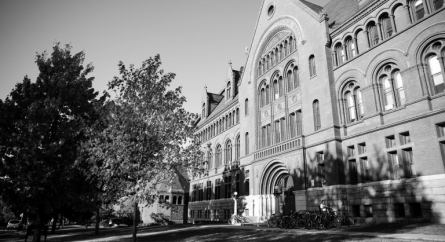Client Alert: Federal Court Rules that Tax-Exempt Private Schools Must Comply with Title IX
On July 21, 2022, the U.S. District Court for the District of Maryland issued a decision which could impact private and independent schools nationwide. In ruling on a motion to dismiss in Buettner-Hartsoe v. Baltimore Lutheran High School Association, Case. No. 1:20-cv-03132-RDB (July 21, 2022), the court held that independent schools that have tax-exempt status under 26 U.S.C. § 501(c)(3) are subject to the same Title IX requirements imposed on public schools. If other federal courts follow suit, private, religious, and independent schools that are tax-exempt may be required to put in place policies and processes for dealing with allegations of sex-based discrimination and harassment that comply with Title IX.
The statutory language of Title IX prohibits discrimination on the basis of sex by education programs or activities that receive Federal financial assistance. Religious educational institutions are exempted from compliance if it would conflict with their religious tenets. See 20 U.S.C. § 1681 et seq. Federal Title IX regulations and federal courts have both defined federal financial assistance to include transfers of federal money, property, or services to an institution. See 34 C.F.R. § 106.2(g); see also Johnny’s Icehouse, Inc. v. Amateur Hockey Ass’n, 134 F. Supp. 2d 965 (N.D. Ill. 2001)
Institutions that receive such federal financial assistance must comply with Title IX. In the Buettner-Hartsoe case, this means that the school can be sued for sex-based discrimination, which includes sexual harassment and discrimination or harassment based on gender identity or sexual orientation. Title IX also requires compliance with federal regulations, which include particular requirements for responding to allegations of sexual harassment. For example, regulations require institutions to follow a process for adjudicating claims of sexual harassment that includes written notice, an investigation, the opportunity for the parties to review evidence gathered and submit questions to each other and witnesses, a written determination of responsibility, and an opportunity for appeal. See 34 C.F.R. § 106.45. Compliance with Title IX regulations may impact independent schools’ ability to resolve disputes about sexual harassment informally, to allow for anonymous participation in such disputes, or to keep identities and other information about a sexual harassment-related dispute confidential. These requirements apply to matters involving both students and employees.
As the Buettner-Hartsoe court noted, its ruling brings independent schools’ Title IX compliance obligations in line with their obligations under Title VI, which prohibits discrimination based on race and applies to institutions that receive federal funding via tax-exempt status. The decision is also rooted in U.S. Supreme Court precedent regarding the nature of tax exemptions, relying on the Court’s statement in Regan v. Taxation with Representation, 461 U.S. 540 (1983) that such exemptions are “a form of subsidy” that is equivalent to a cash grant. If other courts follow this line of reasoning, liability and compliance requirements for Title IX could expand greatly in the coming years.
Client Tip
The Biden Administration has announced proposed changes to the current Title IX regulations. If the regulations are enacted, these changes will require most institutions that are subject to Title IX to revisit their policies and procedures related to sex-based discrimination and harassment. While the rules enacted by President Trump currently remain in place, clients who are reviewing their Title IX compliance should be aware that the requirements for such compliance may change in the coming months. For more information, please contact the author or your Bowditch attorney.
Categorized: Client Alerts, Publications
Tagged In: education, federal financial assistance, sex-based discrimination





